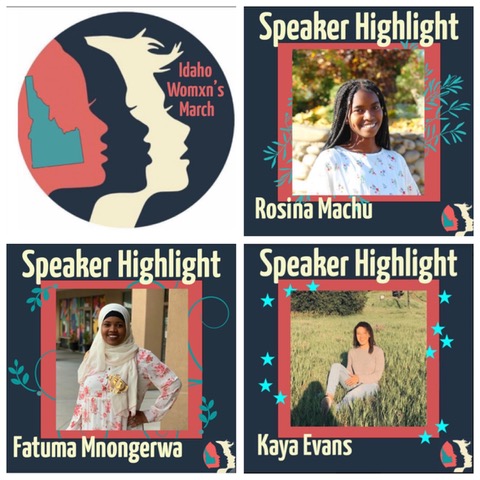
Rosina Machu was in a hurry when she walked into her local poling place on the last day of early voting before the 2020 election. The Boise High Senior was on her way to cross country practice, her final practice before the state competition, so she was hoping to cast her vote quickly.
But the process was anything but smooth for Machu, a first time voter and former refugee from Ethiopia.
A sign on the wall of the polling place told Machu she needed an I.D. to vote. She asked a confused poll worker for an affidavit to sign instead, then mixed up her address on the form. When Machu explained the mistake to a poll worker, she says he asked her to leave the building and got out of his seat to walk her out.
Machu walked back inside and made her case to the chief judge, who gave her a new affidavit to complete.
“There is voter suppression in Boise,” Machu said. “Imagine if this happened to a neighbor, friend or family member. Or they struggled with a language barrier, didn’t know the policies and can’t advocate for themselves.”
She shared the experience at a virtual Womxn’s March on Saturday, live-streamed from the steps of the Idaho Capitol building. Fighting off a constant wind, women from across the state raised the issues of systemic racism, homophobia, voter suppression and the gender pay gap — calling on generations of women to work alongside each other to fight injustice.
“The change I want to see today, is: If you see anyone struggling, I want to see others fight and uplift them,” Machu said.
The 2021 Womxn’s March was the first women’s gathering under the new presidential regime, four years after the event started in protest after Donald Trump’s inauguration. Boise’s event highlighted continued injustices faced by American women, but also celebrated a major milestone: America’s first female Vice President, Kamala Harris.
Youth activists took center stage at Saturday’s march, emcee’d by 15-year-old sophomore Petra Hoffman.
“We need you. Without your drive, your energy, your confidence and your work, progress could easily slow down. We don’t have time for that,” Idaho State Senator Ali Rabe said, before turning the mic over to a series of young female speakers.
Boise State University grad Fatuma Mnongerwa, 23, spoke about the ongoing fight for racial justice. African-American women are paid around $.61 cents for every dollar a white man makes, Mnongerwa said, a disparity that feeds pervasive income inequality in America.
“This generation wants liberation,” she said. “Our paychecks should not reflect our gender, our race, our sexual orientation and our religion, but the quality of our work.”
Kaya Evans, a senior political economy major at the College of Idaho, said solving these issues requires generational knowledge. She called on older generations of activists to help guide and empower young women who want to fight for justice.
Mentorship, she said, helps women collaborate instead of seeing one another as adversaries.
“There is too much struggle experienced as a woman for us to be adding struggles among women. I won’t compete with women who were already born competing,” she said. “I will uplift women, I will recognize in them something that I hope they recognize in me: an individual whose personal fate is tied to the fate of the community.”
